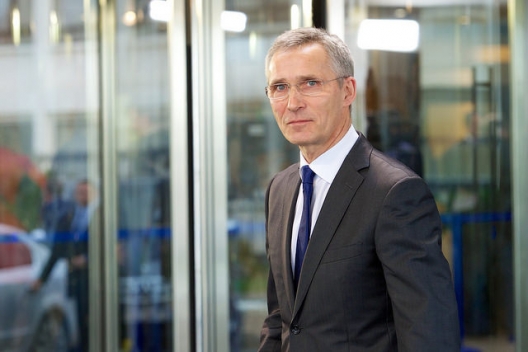 We don’t see any imminent threat against any NATO ally. What we see is a more assertive Russia. We see a Russia which has invested significantly in their armed forces, in new military capabilities, and a Russia which has been willing to use military force against neighbours as we have seen in Georgia and in Ukraine with the illegal annexation of Crimea and supporting the separatists in Eastern Ukraine.
We don’t see any imminent threat against any NATO ally. What we see is a more assertive Russia. We see a Russia which has invested significantly in their armed forces, in new military capabilities, and a Russia which has been willing to use military force against neighbours as we have seen in Georgia and in Ukraine with the illegal annexation of Crimea and supporting the separatists in Eastern Ukraine.
That’s the reason why NATO has responded and we have implemented the biggest reinforcement of collective defence since the end of the Cold War with more military presence in the eastern part of the Alliance; with high readiness of our forces, and; now also we see increased defence spending across Europe and among NATO allies. And we strongly believe that by being strong, by providing deterrence, collective defence we do not provoke a conflict but we prevent a conflict because as long as any adversary know that an attack on one ally will trigger a response from the whole Alliance then we will maintain peace and stability and the security of all allies.
We are concerned of course about cyber-security and we have seen reports about cyber-attacks against many NATO allies and any attempt to intervene or to influence national elections from outside is unacceptable and that’s also one of the reasons why NATO has been very focused on how can we strengthen our cyber defences, partly to defend our own cyber networks but also partly to work with allies to help them improve their cyber defences and we’ve also developed a team of people, experts that can be deployed to a NATO ally if it’s under cyber-attack to help and assist and help them defend their cyber networks. So cyber-security is top of our agenda and has been one of the most important things we have addressed, for instance, at our Summit in Warsaw last year.
Excerpt from remarks by Secretary General Jens Stoltenberg to the press, January 12, 2017.
Image: Secretary General Jens Stoltenberg, Jan. 12, 2017 (photo: NATO)
